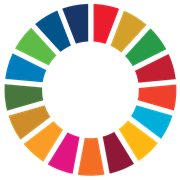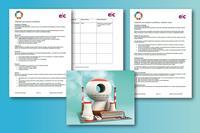Chemists have a key role to play innovating industry and improving sustainability
This activity gives your learners an authentic insight into how scientists work. They will practise key skills of effective research and presentation while learning more about catalysts and reaction conditions in the context of sustainable industry.

Sustainability in chemistry

This resource accompanies the Education in Chemistry article Tie sustainable industry into your chemistry topics where you will find more support and suggestions for how to connect your current chemistry teaching with UN sustainable development goal 9: build resilient infrastructure, promote sustainable industrialization and foster innovation. Use the goal to give this activity an engaging and relevant context.
The task
Research a range of industrial processes and product syntheses using the The Essential Chemical Industry – online. Record what you have found out in a table.
- Identify whether any catalysts are involved in the industrial process or product synthesis.
- Identify the temperature and pressure conditions needed.
- Calculate the atom economy of the main reaction.
- Note any other points of interest.
Possible products to investigate include ammonia, chlorine, hydrogen, nitric acid, sodium hydroxide and sulfuric acid. Processes that you could research include cracking/refinery, distillation and fracking.
Present your research in one of the following formats:
- a short verbal presentation (5 minutes),
- a poster to present in a poster session,
- a digital presentation.
Teacher notes
A table template is provided on the student sheet to help guide learners in their research and collate information.
The presentation could take multiple forms, depending on what learning outcomes you want for the activity. Example approaches:
- Short verbal presentations will give your students the experience of talking concisely and clearly in front of a group of peers.
- Posters to be presented in a poster exhibition, providing opportunity to defend their work to others in an environment often found at scientific conferences.
- Online presentation using, for example, Microsoft Sway, to make a multimedia presentation that could be shared with younger students or parents.
Remind students to think about their audience. Encourage them to evaluate their presentation using the prompt questions and make any improvements before they deliver it.
Differentiation
This activity is well suited for all students regardless of prior attainment. Some students may require additional support, such as directing towards compounds with simpler chemistry or a more limited set of information to engage with. Alternatively, students could be paired with clear roles assigned within the team to support skills development. For example, less confident public speakers could be given the middle section of a verbal presentation, giving them some time in front of the audience before they have to speak.
To increase the challenge, you could remove the table template for research and ask learners to construct their own. You could also reduce the number of suggestions for products and processes to just give one example.
Peer assessment
Students should be encouraged to peer assess the presentations/posters. A simple set of objectives can help them focus their assessment and ensure constructive feedback is given. For example:
- Is the overall message of the presentation clear? Can you summarise this in a couple of sentences?
- Was the chemistry accurate and accessible?
- Was context used to enhance the chemistry or was it distracting?
- Were sources of information clearly cited?
Self-assessment
Students should also self-evaluate their work and presentation afterwards. For example, answering questions like:
- How efficient was I in my research? Did I stick to the task at hand, or did other work/non-work distract me?
- How well did my planning work when putting together my presentation? Did I have to go through multiple drafts?
- How did I feel during the presentation? Was I confident or apprehensive? Did I do sufficient preparation/practice beforehand? How did I regulate my emotions during the stress of presentation?
- What key target will I set myself to improve my work process next time I have a similar task?
Link sustainable energy to your lessons on catalysts and enhance your teaching in this topic area with the UN Sustainable development goal 7 (ensure access to affordable, reliable, sustainable and modern energy for all) article in this series.
Additional resources
- Catalyst for change focuses on transition metals as safe and sustainable catalysts and includes some games to familiarise 16–18 learners with the key vocabulary.
- Sustainable development and green chemistry includes a worksheet on calculating atom economy.
- Link to a careers video of a chief executive officer developing catalysts and find more inspiration with our Innovating industry page.
Downloads
Catalysts and reaction conditions sustainable industry: student sheet
Handout | PDF, Size 0.24 mbCatalysts and reaction conditions sustainable industry: student sheet
Editable handout | Word, Size 0.14 mbCatalysts and reaction conditions sustainable industry: teacher notes
Handout | PDF, Size 0.17 mbCatalysts and reaction conditions sustainable industry: teacher notes
Editable handout | Word, Size 0.13 mb



















No comments yet